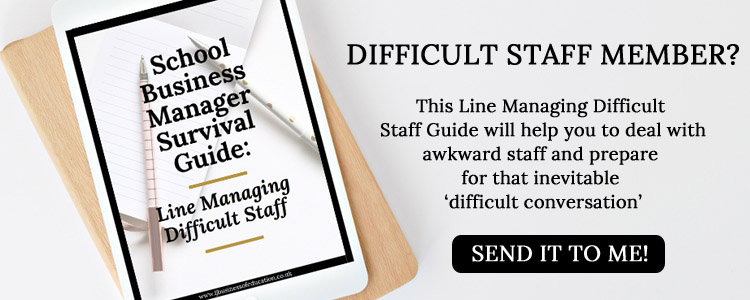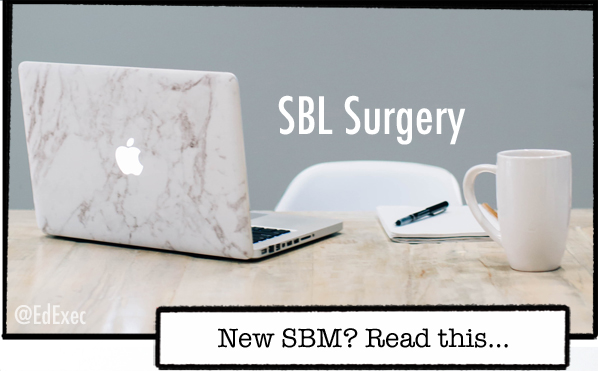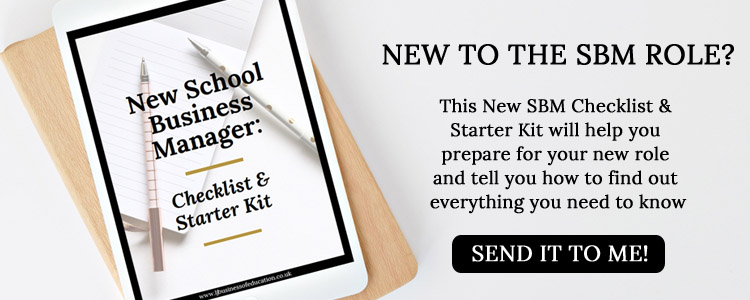Laura Williams, of LJ Business Consultancy, explains why SBLs need to shout about what they do in order to receive the respect they deserve – and why qualifications alone aren’t the answer…
I had the brief for this article long before I saw a debate erupt on Twitter – a debate about how SBLs can gain respect as a profession in an industry full of pedagogues. The blog that triggered this debate discussed the value of continuous professional development and the achievement of higher-level SBL qualifications in order to compete for roles such as CEO.
As a former SBL who has achieved both CIPD and CIPFA qualifications, I can confirm that, yes, these qualifications did support my progression to the role of COO. However, I can also say that it was not solely these qualifications that enabled this progression; in fact, I obtained my CIPD qualification after my promotion to SBL and I achieved my CIPFA qualification after I took on the additional role of CFO. I reported to the board, developed robust strategies and led an audit – and not once did the fact I didn’t have a qualification in finance, at the time, hinder my performance in my role.
A magic key?
Too often, qualifications are seen as the ‘magic key’ to unlock the next role up the ladder. I cannot tell you how many well-qualified people I have met in my career (teachers, headteachers, HR managers and CFOs) who have not performed well in their role despite the list of letters after their name. The reason for this, I believe, is that the difference between being qualified and actually doing the job is like learning to drive – you pass the test and you’re on the road – but the reality of the road is very different to that which you encountered in test conditions. A qualification can develop you into a role, and it can rubber stamp your experience, but it cannot replicate time-served, on-the-ground delivery. As someone responding to the blog said, ‘CPD develops skills – it does not prove them’.
Just yesterday I spoke to a newly-appointed CEO who had been told, only 12 months previously that, as he had only been a headteacher for a year, he was not a suitable CEO candidate. I myself was told, after being long-listed for a CEO position, that I was a credible candidate but the board felt it was ‘too much of a risk’ to appoint a non-teacher – and I was accredited, experienced and proven!
‘The blocker to CEO roles for SBLs, COOs and CFOs is the insistence on headship experience or QTS,’ a person responding to the blog said, and I cannot help but agree. The perception of the role in a teacher-led industry is hugely varied. I have worked with amazing leaders who have recognised my value and my contribution and have paid me accordingly; I have also worked with leaders who have talked over my head rather than listened to my contribution to the discussion.
Who’s happy? Who’s not?
The SBLs who I work with now, and who are happiest in their roles, are the ones who have the support of their head and have a direct and tangible impact on the performance of their school. Some of these SBLs are not qualified to a high level, but execute their day job as good as any SBL I’ve come across, and are more than ready to take the next step into COO and CFO roles.
The SBLs I work with who are the unhappiest are the ones whose headteachers exclude them from SLT meetings and point-blank ignore any suggestions for improvement that they may have. These SBLs never get the chance to show how much of a difference they could make if only they were allowed. Often, these SBLs have sought additional qualifications, yet these have made no difference. These SBLs are being held back by an individual or school who hold tight to the view that an SBL is nothing more than an administrator.
Whilst I advocate for professional development, and I help individual SBLs to break through the glass wall (not even a ceiling at this point), I believe that the quickest way for SBLs to gain respect in their profession is for us to tackle the issue at source – and that is the perception of headteachers, SLTs, governors and trustees.
The work that I do with SBLs, and the work that I do on the NPQEL programme, is my way of helping to shift perception. I use what I have learnt to show executive leaders what is possible when it comes to working with someone like me – or rather someone like you, the SBL who has ambition and the aspiration to do more, to be better and to progress to a executive leadership role in the future.
The role that we undertake as SBLs is of equal value and should be recognised and remunerated as such and, not only this, we can give them a good run for their money when it comes to debating strategy, business and delivering value and improvement for our students.
The ISBL is correct; there is no reference point for executive leadership, specifically where it converges at CEO level. It has done great work in lobbying the government and raising the profile of the role within the industry. However, until the decision-makers, the recruiters and the leaders on the ground not only feel brave enough, but also secure enough, to appoint a SBL or a COO/CFO to a senior leadership position, then nothing will change.
I understand that there are a handful of non-teacher CEOs currently leading MATs; we would probably describe them as unicorns! Why? Because we don’t hear about them enough. We don’t talk about their successes and we don’t celebrate their progression. What can we learn from them? What made the decision-makers in their organisation take that leap, and what benefits have they seen?
I always say that respect and credibility cannot be given, they must be earned. SBLs have to walk the walk and talk the talk, but too many are being held back and falling silent because the leaders in their organisations ignore them. To this, I say, ‘Keep walking, keep talking and, when you need to, shout.’
That’s how I did it – I talked and talked until people listened and until I proved that I was right. It takes courage, it takes resilience and it takes a lot of chocolate (believe me!) but it can be done.
Like what you’ve read? Subscribe to this blog by clicking here.
P.S. Have you joined The Business of School Leadership Facebook Group yet? For practical support, advice, tips, tools & guidance about all things school leadership, join us in the community by clicking here.
Written for: Education Executive Magazine (@edexec)












